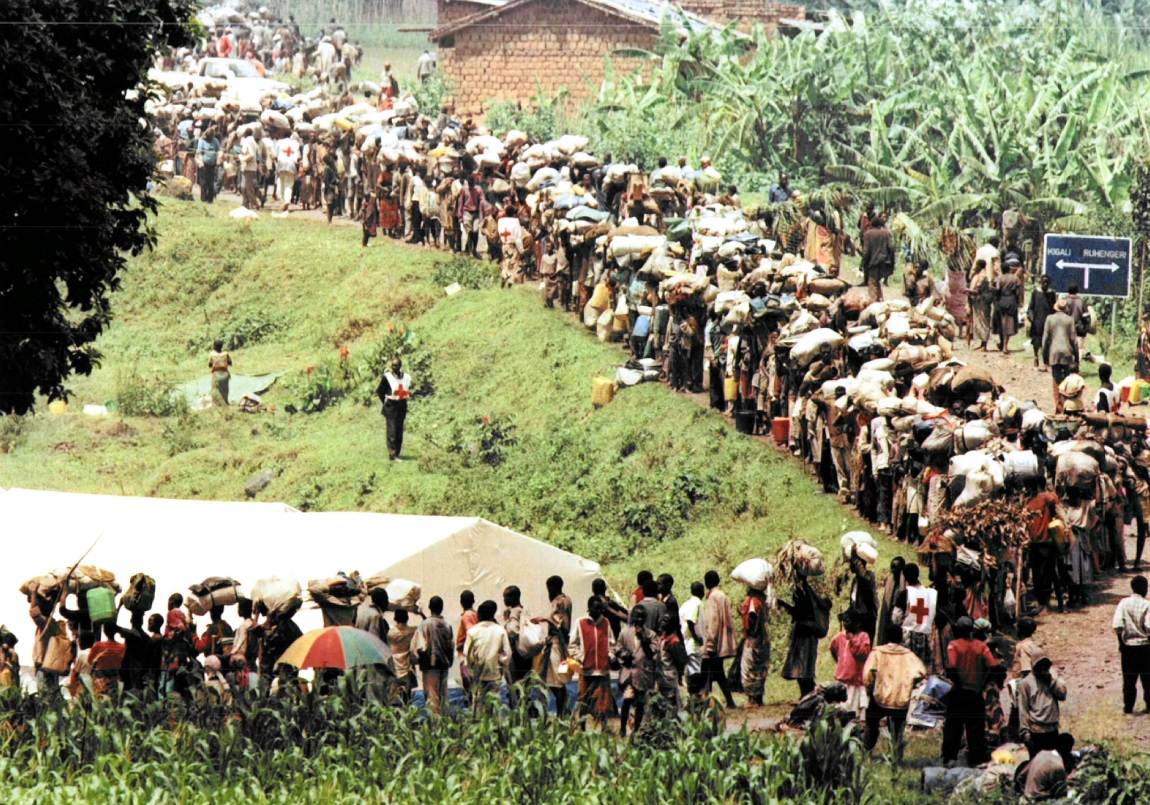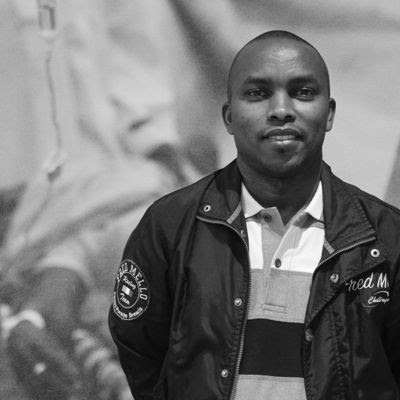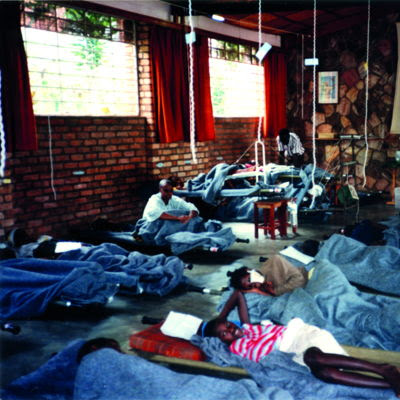
This year marks 24 years since the Rwandan genocide. More than a million people were killed during the 100 days of violence. The Rwandan genocide caused a wide-reaching crisis with many refugees being forced to flee to neighbouring countries. 7 April marked the Day of Remembrance for the Victims of the Genocide. Several young people who fled the violence have now become field workers for Medecins Sans Frontieres (Doctors Without Borders). The Daily Vox team spoke to Innocent Maniraruta, an MSF field worker who lived through the genocide.
Can you tell me about your general work with MSF?
I work as finance manager with MSF. My role supports the medical and logistical elements of our operations. I help ensure the money from our individual donors – ordinary people who donate small amounts monthly – is used in the best way to help patients, and enables our independent medical care. I have worked in different countries for MSF – like Mauritania and Guinea. Currently I work in Haiti.

When did you started working with MSF and what led your decision to do so?
I started working with Doctors Without Borders (MSF) in September 2015. I knew what MSF does in the field – they save lives and help people who are suffering. I wanted to be part of an organization like that which has such a good mission of helping people who are in need through medical care. I learnt this when I saw them working during a genocide perpetrated against Tutsis in my home country Rwanda in 1994. Very few people and organizations came in to try and save lives, while most of the world didn’t.
Can you share your feelings about the Rwandan genocide as the anniversary draws nearer?
I want the readers to know and understand firstly that 1994 was not a Rwandan genocide, but a genocide perpetrated against Tutsis in Rwanda. I am happy to see that at least people remember our brothers, sisters, and parents who perished in 1994 because the aim of those who planned the genocide was to exterminate Tutsis. But today, the world which refused to come and help back then, are now remembering together with Rwandans. And for some of them it is an opportunity and a lesson to work to avoid such events happening again in their respective countries. Rwandans had to stop the genocide themselves while the whole world was looking at what was happening.
I know this might be a difficult question but what do you remember about the genocide?
I remember the hate that came from nowhere. I remember everything done by our brothers, the Hutus, who killed innocent people in different ways, only because they were Tutsi. We didn’t choose our ethnicity or race when we were born. Because of bad leadership at the time, and genocide ideology from 1959 until 1994, that led to the genocide in 1994. Until today I don’t have words to describe what I have seen and the reasons why our neighbors, friends, and even Hutu relatives, changed in just a minute because they got instructions to kill all Tutsis including children. People became foolish. But I also remember the very few Hutu people who tried to hide Tutsis and save the lives of some people. I thank them very much, especially as I was hidden during the time. May God bless every Hutu who at least saved the life of a Tutsi. It was not easy during that time.

How has what happened in Rwanda influenced your work with MSF?
After the genocide, I saw MSF vehicles passing in the capital, Kigali, and I got information about their work. My vision was to help people who are in need, especially children, due to the fact that I couldn’t get people to help us during the genocide. After I got more information about MSF and the work it does, this inspired me to contribute wherever possible in the field as their work aligned with my vision. I am glad to contribute to the great work done by MSF teams in different countries around the world.
What message would you want to say to the international community and media, in light of the Rwandan genocide, as so many conflicts and violence is happening around the world?
I have never seen such a bad thing as the genocide perpetrated against Tutsis in Rwanda, in 1994 where more than one million people were killed. Before this, the international community had said “never again” after the genocide committed against Jewish people in Europe. But even recently in Burundi, people have been killed while the international community did not assist.
I ask people to please act and not just talk. People and their leaders should prevent genocide in their respective countries and establish good leadership. It is the ultimate shame to kill your own people! No genocide would happen without the knowledge or support of people in power. In Rwanda, the government at the time, soldiers and gendarmes took the lead because in different places, ordinary people resisted attacking the Tutsis.
Many people suffer from the various consequences of the genocide. Medical doctors who cared for the people and teachers were killed. Some people who committed genocide ran away to the Democratic Republic of Congo (DRC) and elsewhere, they also suffered in the long run due to what had happened.
I want to request leaders of different nations to avoid discrimination against their own people and work for peace and development in good collaboration and power sharing. I also invite them to react and help each other when such bad situations arise and not wait for the dramatic escalation of a situation or just to take action after killings take place. Intervene on time and always prevent such bad situations because in most cases information is known beforehand.
I finally invite the world to come in Rwanda and see physically for themselves what happened.








